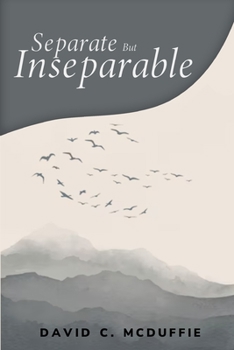separate but inseparable
The idea for this project first began to come to me after I had completed the requirements for the University of Georgia's Environmental Ethics Certificate Program. I had written my certificate capstone paper on the role of ecological knowledge in relation to forming a Christian theology of ecology, which would support a viable ethic of the natural environment. I had built this theological conception around the philosophical framework of Alfred North Whitehead's process philosophy arguing that Whitehead's system supported a theistic perspective, which was understood as being predicated upon the best available ecological science. In other words, I contended that process theism provided a theological option which would be compatible with modern science and would therefore be conducive to perpetuating an ethic, which would be ecologically credible. Furthermore, I held that a philosophical and theological approach to the natural environment supported by a process framework would perpetuate an ethic which would recognize ecological holism while maintaining attribution of value at the level of the biotic individual. In brief, I thought that process thought could provide a system which would adequately take into account the holism inherent within an ecological worldview while not negating the value of the individuals which exist within and contribute to the world's ecosystems.





